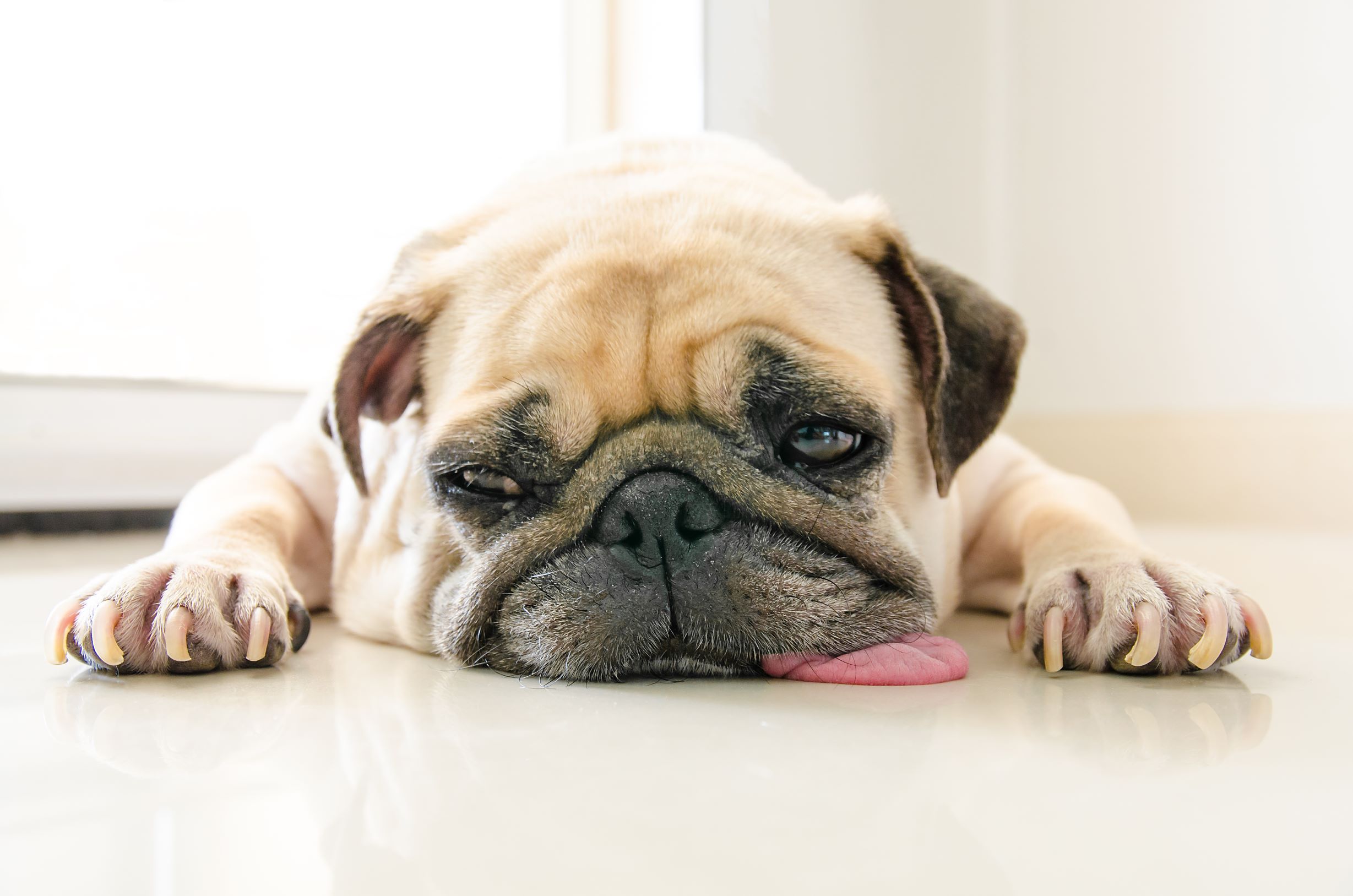There are steps you can take if your dog has diarrhoea and sickness
If you are a dog parent, the chances are you have had experience of your pooch suffering from diarrhoea.
This can be an unpleasant experience for both you and your pet and something that you want to help them recover from as quickly as possible.
So what causes diarrhoea in dogs?
There are many reasons why this might happen, from eating the wrong foods to stress, and sometime more serious underlying health issues that need urgent veterinary care.
Diarrhoea can lead to dehydration and other complications in your dog if left untreated, so dog parents should seek professional guidance to determine the underlying cause and appropriate treatment.
Your vet might suggest a probiotic paste in more mild cases of diarrhoea in dogs. This helps rebalance the gut and is a great way to boost your dog’s overall wellbeing.
PetExx Stomach Settler is an easy feed probiotic paste and starts at just £12 for a 15ml tube.
The PDSA can also give you advice on this doggy health issue.

Here are eight reasons that might be causing your dog’s diarrhoea.
- Dietary Changes In most areas of their lives, our four-legged friends like routine. How many of us see our dogs being ready for a walk or bed at the same time every day? Being creatures of habit extends to their food and sudden changes of diet can upset their digestive system. This can lead to diarrhoea in dogs. Introducing your pooch to different food too quickly or giving them a food that doesn’t really agree with their tummy can trigger gastrointestinal distress. So, once you have a diet that works for your dog, stick to it. Dogs don’t need fancy meals or treat nights. They like routine and so do their tummies.
- Food Allergies or Intolerances Like us, it is possible for dogs to develop allergies or intolerances to certain ingredients or types of food. This can occur at any time in their lives, just like humans. This could be grains, dairy products, or soy. Eating these could result in doggy diarrhoea, vomiting or other gastrointestinal symptoms. Try to keep a note if you start to notice mild symptoms and talk to your vet about it as they might need to undergo allergy testing.
- Eating Inappropriate Substances Dogs don’t have the same off button as humans for unsuitable foods. If it smells good to them chances are they might decide to try and eat it. This can include unpleasant and sometimes toxic substances. And what is non-toxic to us can be poisonous to dogs, this includes foodstuffs like chocolate and grapes among other things. Dogs are notorious for scavenging and may also ingest items that are indigestible. This could include rubbish from your bin or discarded in the street, spoiled food, plants, household chemicals, or even non-food items like toys or clothes. Ingesting such substances can irritate the gastrointestinal tract and lead to diarrhoea in dogs. Again, seek urgent treatment form your vet if you suspect your dog has eaten something poisonous or capable of causing a blockage in the digestive tract.
- Bacterial or Viral Infections Dogs can contract infections from bacteria (such as Salmonella, E. coli, or Campylobacter) or viruses (like parvovirus or canine distemper) that affect the gastrointestinal tract. These infections often cause dogs to suffer from diarrhoea, along with other symptoms like vomiting, lethargy, and a loss of appetite. They can also be extremely serious and in some cases fatal so don’t delay in seeking advice and treatment from your vet.
- Parasites Intestinal parasites like roundworms, hookworms, or tapeworms as well as protozoa like Giardia or Coccidia are common in dogs, especially puppies. These parasites can cause diarrhoea, in dogs along with weight loss, bloating, and other unpleasant and sometimes serious problems. You should follow a good routine of preventative medicine under the advice of your vet. Worming tablets are easy to feed and much cheaper and less traumatic for you and your dog than an infection caused by parasites.
- Stress or Anxiety It is not uncommon for all pets to suffer from stress if they have a change of routine, undergo a house move, are exposed to loud noises, or suffer from separation anxiety. This has become even more acute following the Covid pandemic lockdowns and as some people return to the office from home working. As well as the behavioural symptoms this can cause dogs can also suffer from stress-induced diarrhoea.
- Underlying Health Conditions There are some medical conditions like inflammatory bowel disease (IBD), pancreatitis, kidney disease, liver disease, or cancer that can include diarrhoea in your dog as a symptom. These are serious conditions, and they require diagnosis and treatment from your vet.
- Medication Side Effects Non-steroidal anti-inflammatory drugs (NSAIDs), antibiotics, and certain chemotherapy drugs might cause diarrhoea in dogs. You should discuss this with your vet and find products that might help ease these side effects.




